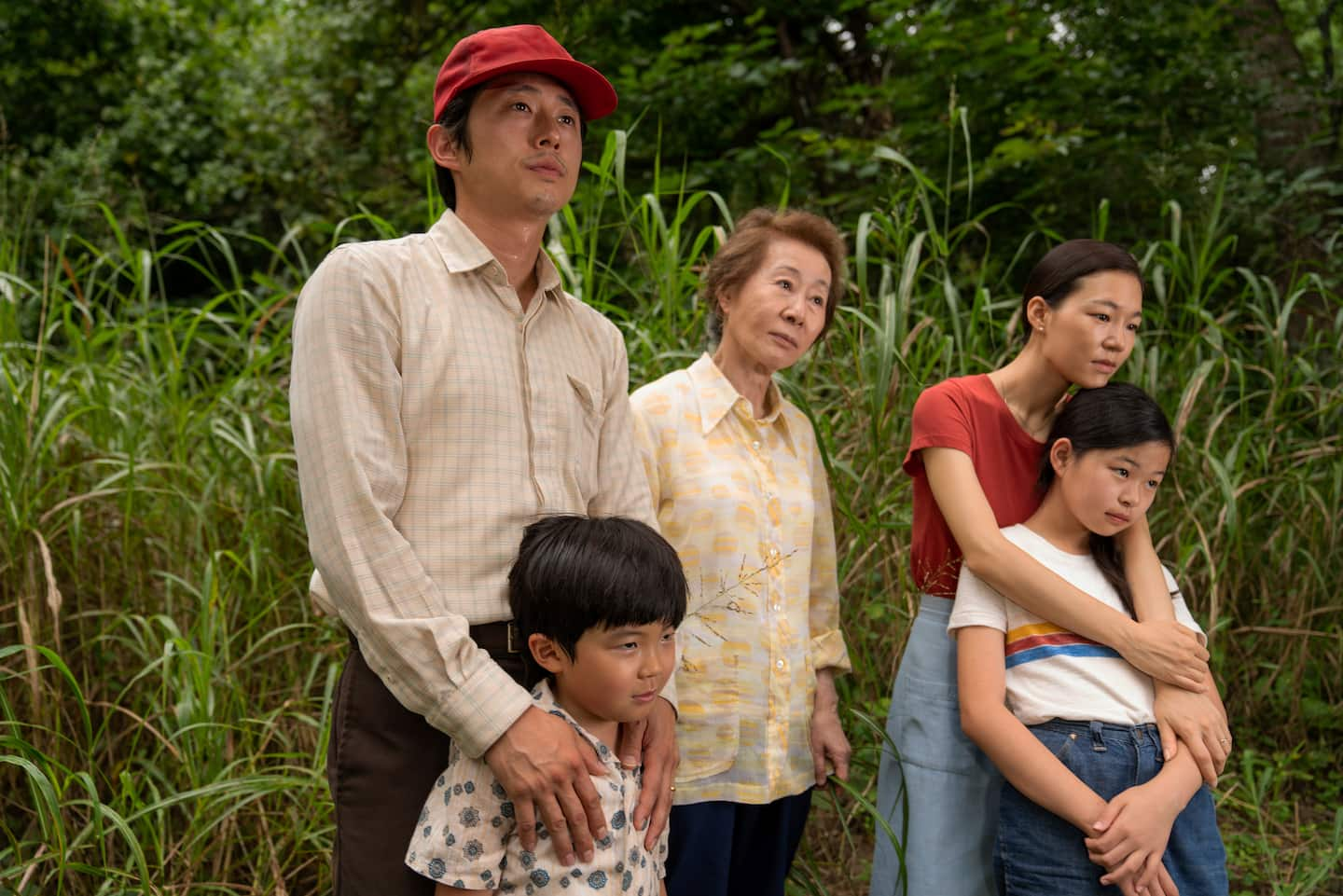America has had a bad run. Two movies might restore your faith in the idea of it.

But just as snowdrops push through the cold earth at the end of winter, a new tone from our leaders and the vaccines shipping out across the country carry the promise of a new season for the nation. Turning that potential into reality, though, will require values that have sometimes seemed in short supply in the real world. Fortunately, these qualities are on moving display in two movies that are front-runners for Academy Awards, Chloé Zhao’s “Nomadland” and Lee Isaac Chung’s “Minari.”
Neither “Nomadland” nor “Minari” shies away from the idea that America can be a hard place to live, much less thrive. But rather than despairing, both films find hope in the spirit of ingenuity and the surprising connections that spring up between people who have been thrown out of their element.
“Nomadland” follows its main character, Fern, as she travels the country, picking up seasonal work through Amazon’s CamperForce program and beet harvests. She hit the road after her husband died and the company that employed him closed, thereby turning their hometown into a ghost town. The film is quietly unsparing in its condemnation of an economic system that leaves working people destitute in retirement, turning them into metaphorical carrion for the vulture-like enterprises that pick at the scraps of their labor.
“Minari” is about a task that’s difficult by nature: trying to start a small farm with limited capital and little outside labor. The Yi family, Korean immigrants who settle in Arkansas, face distinct challenges, but in many respects, their obstacles are the same as those Laura Ingalls Wilder presented in her “Little House” books: How will they get enough water for the crops? What’s the appropriate balance to strike between a father’s dream of rural life and a mother’s need for social connection?
But these are not stories that reject the American idea, or the American Dream.
For Fern, those ideals are clearest in the community that has coalesced around the Rubber Tramp Rendezvous, a real-life gathering of nomads — some of whom play themselves in the film — who come together to swap advice on living on the road, as well as to provide mutual support. For the Yi family, that spirit of help and community comes from a devoutly Christian White man who works on the farm, trading advice on irrigation and planting techniques with the patriarch of the family, and making the matriarch feel less alone in her deep faith.
In their own ways, “Nomadland” and “Minari” capture the spirit of the mutual aid networks that sprung up — or, in some cases, got new life — in the early days of the pandemic. They are a testament to the value of such efforts not just for the people who benefit from the help they provide, but also those who find purpose in helping others. As the pandemic ebbs, some of the need it occasioned may disappear. But Americans have always leaned on neighborliness and innovation in the best of times. “Minari” and “Nomadland” make the case for recommitting to those values.
In keeping with that idea, the movies share a tendency to de-escalate tension rather than ramp it up.
In “Minari,” the Yi children face racist questions on their first visit to a church at which they are the only Korean Americans. But rather than using these incidents to presage uglier events to come, the film shows that the White children are acting out of curiosity and ignorance, not malice. A little boy who asks “Why is your face so flat?” becomes a friend; a little girl who babbles nonsense syllables she thinks might be Korean is simply excited to learn another language.
There’s a similar moment in “Nomadland” when Fern, parked at a gas station on a bitterly cold night, hears a knock on her van door. But instead of a police officer or a hostile proprietor telling her to move along, it’s simply a worried woman wanting to direct Fern to a church where she could find an indoor bed for the night.
There are racists in America whose implacable hatred must be confronted. And a knock on the door can be deadly rather than benign. But the kindness of “Nomadland” and “Minari” reveals what it might be like to unfurl from a defensive crouch intended to guard against our fellow citizens — and to experiment with expecting the best of strangers and neighbors instead of the worst.
Read more:






